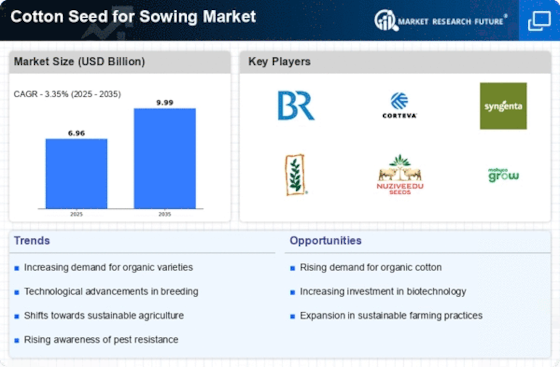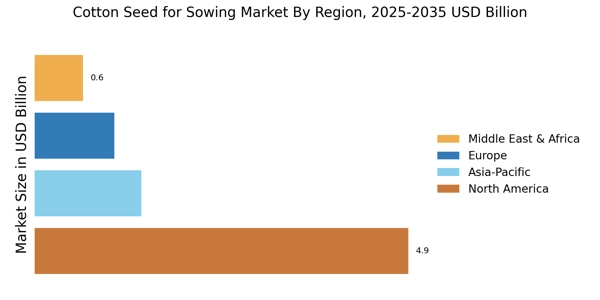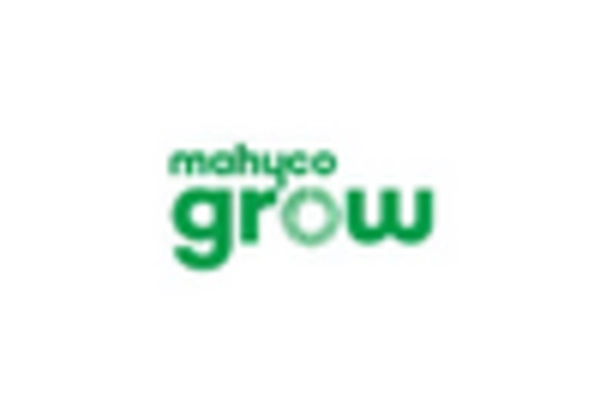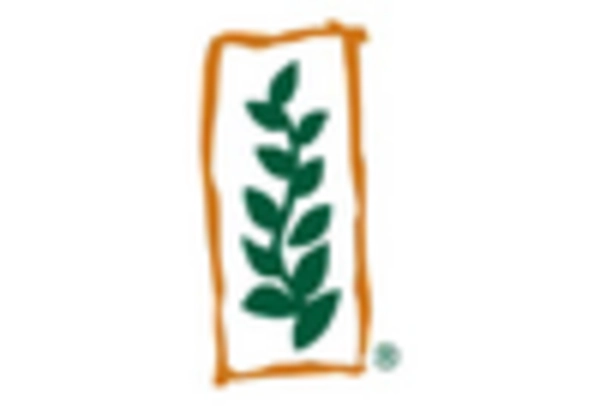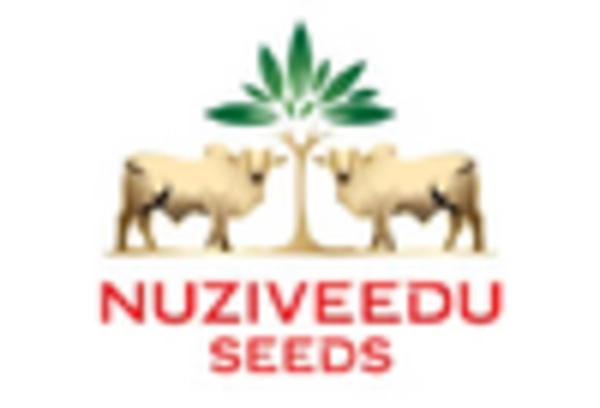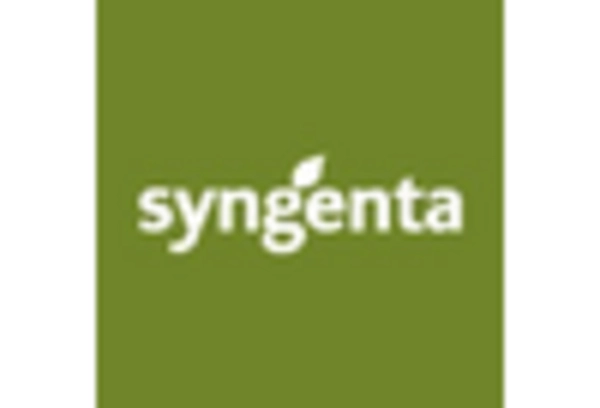Government Support and Subsidies
Government support and subsidies play a crucial role in shaping the Cotton Seed for Sowing Market Industry. Many countries have implemented policies aimed at boosting cotton production, including financial assistance for farmers who adopt improved seed varieties. For example, subsidies for genetically modified cotton seeds have been introduced in several regions, encouraging farmers to transition to more productive and resilient crops. This support not only enhances the economic viability of cotton farming but also stimulates demand for high-quality cotton seeds. As a result, the Cotton Seed for Sowing Market Industry is likely to experience growth driven by favorable government policies.
Rising Demand for Sustainable Textiles
The increasing consumer preference for sustainable textiles is a pivotal driver in the Cotton Seed for Sowing Market Industry. As awareness of environmental issues grows, brands are increasingly seeking organic and sustainably sourced cotton. This trend is reflected in the rising demand for organic cotton, which has seen a compound annual growth rate of approximately 10% in recent years. Consequently, farmers are incentivized to adopt cotton seeds that align with sustainable practices, thereby enhancing the market for cotton seed varieties that meet these criteria. The Cotton Seed for Sowing Market Industry is likely to benefit from this shift, as producers strive to meet the evolving demands of eco-conscious consumers.
Emerging Markets and Export Opportunities
Emerging markets present substantial opportunities for the Cotton Seed for Sowing Market Industry. Countries in Asia and Africa are witnessing a surge in cotton production, driven by favorable climatic conditions and increasing investments in agriculture. These regions are becoming key players in the global cotton supply chain, with exports of cotton products on the rise. As these markets develop, the demand for quality cotton seeds is likely to increase, prompting local farmers to invest in better seed varieties. This trend could lead to a robust growth trajectory for the Cotton Seed for Sowing Market Industry, as it aligns with the global demand for cotton.
Technological Advancements in Seed Production
Technological advancements in seed production are transforming the Cotton Seed for Sowing Market Industry. Innovations such as precision agriculture and biotechnology are enhancing seed quality and yield potential. For instance, the introduction of hybrid cotton seeds has led to increased resistance to pests and diseases, which is crucial for improving productivity. Reports indicate that the yield from hybrid seeds can be up to 30% higher than traditional varieties. As farmers increasingly adopt these advanced seeds, the Cotton Seed for Sowing Market Industry is poised for growth, driven by the need for higher efficiency and productivity in cotton farming.
Increasing Global Population and Cotton Consumption
The increasing The Cotton Seed for Sowing Industry. As the population continues to rise, so does the demand for cotton-based products, including textiles and apparel. Projections suggest that cotton consumption could increase by 2-3% annually, necessitating higher cotton production to meet this demand. This scenario compels farmers to seek high-yield cotton seed varieties to maximize their output. Consequently, the Cotton Seed for Sowing Market Industry is expected to expand as producers respond to the growing need for cotton in various sectors, including fashion and home textiles.


